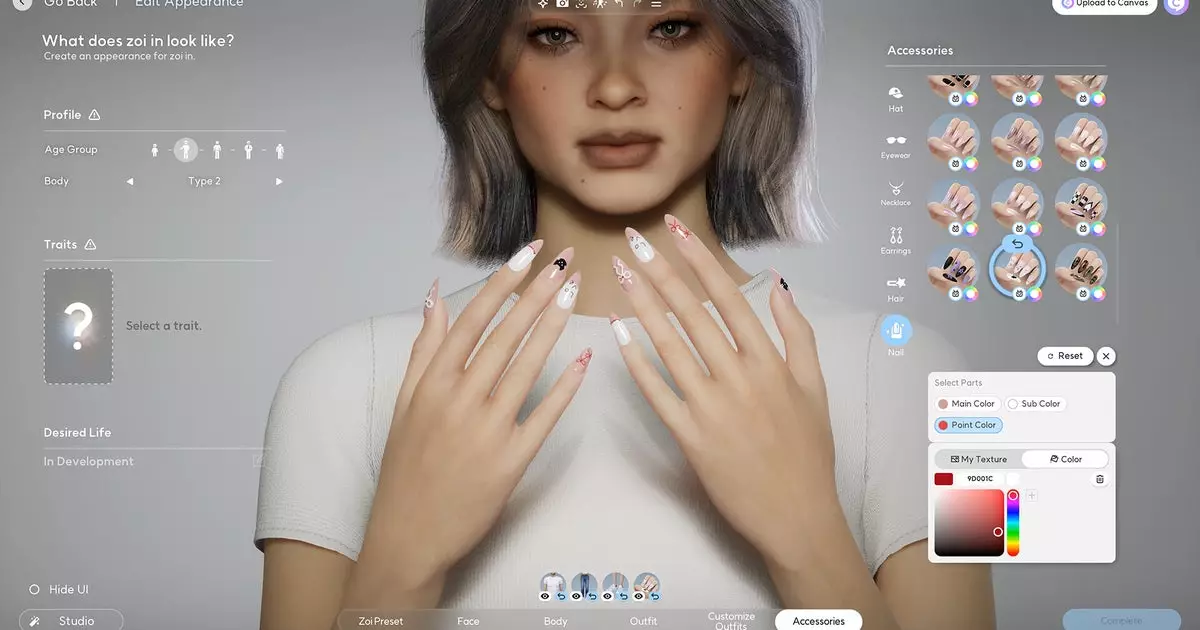In an era dominated by The Sims franchise, InZoi emerges as a promising contender, offering fresh perspectives and innovative gameplay mechanics. Set to launch into early access on March 28th, InZoi will be priced at $40, a figure that brings both excitement and skepticism among gaming enthusiasts. The developers, led by game director Hyungjun Kim, have made a formidable commitment: all updates and downloadable content (DLC) will be delivered free of charge until the game reaches its 1.0 version. This ambitious maneuver is not just a marketing tactic; it also underscores a philosophy that seeks to prioritize the player experience over profits.
The Value Proposition in Early Access
At face value, the decision to provide free updates and DLC during the early access phase appears to be a gamer-friendly initiative. It positions InZoi as a “gift” to the community, especially in light of The Sims’ tradition of charging players for DLCs that often approach the cost of full games. However, there needs to be a deeper analysis of what early access truly means in the gaming world. By paying for an unfinished game, players inherently expect it to evolve into something worthwhile. The concept of free updates and DLCs raises the question: should this form of generosity be a given?
In the context of game development, distinguishing between an update and a DLC can be murky. Developers typically release updates to improve gameplay and fix bugs, while DLCs often introduce new content that enhances the overall experience. By blurring this line, InZoi risks confusing its players and raising questions about the sustainability of the game’s development model.
Scheduled Updates: What Players Can Expect
The developers have a clear roadmap, issuing promises of four significant updates throughout the year. Each update intends to bring substantial enhancements and new features that will keep the gameplay engaging.
– Update 1 in May will introduce modding capabilities alongside substantial changes to relationship mechanics and building functionalities. The inclusion of cheat codes indicates a nod to the desire for creative freedom within the game.
– Update 2 in August enhances the gameplay with features like ghost play—introducing a unique twist that allows for moral implications based on character deaths and karma. This gameplay mechanic could add layers of depth that players crave.
– Update 3 in October will focus on refining the user experience, including moving homes and customization options for families. Better customization options align perfectly with today’s gaming culture that favors player-driven narratives.
– Update 4 in December promises features like a memory system, which could enrich character development in ways The Sims has yet to fully explore.
This development cycle reveals that InZoi recognizes the importance of user feedback, showing responsiveness to community desires—a trait that may be vital to competing against a titan such as The Sims.
The Thrill of Community-Created Content
One of the most intriguing aspects of InZoi’s progression will be the mod kit, launched in the first update. This feature is both a gamble and an opportunity; it invites a community of modders to shape the game alongside its developers. A vibrant modding community can propel InZoi to new heights, allowing the game to evolve based on user creativity and direct feedback. However, the game’s success won’t solely depend on modding features; it must cultivate an ecosystem that embraces community-driven enhancements while ensuring that the core gameplay remains captivating.
The Ethics of Game Development Pricing
While the intentions behind InZoi’s pricing and update strategy appear noble, the complexity of game development should not be overlooked. It’s possible that the demands of development might force the developers to reevaluate their free content policy. Unforeseen costs and player requests may lead to a disappointment if InZoi chooses to monetize later expansions. Yet, when viewed through a consumer perspective, players are right to question the integrity of a model that markets itself as “gamer-first” while potentially leveraging uncertainty for future profits.
In essence, the appeal of InZoi lies not just in its competitive pricing or features but in the bold vision that seeks to shift the paradigm in life simulation games. InZoi is not merely challenging The Sims; it could redefine what players expect from life simulation experiences. Its philosophy reflects an eagerness to foster a thriving community rather than just focusing on immediate financial gains, providing a thrilling glimpse into the future of interactive entertainment.

